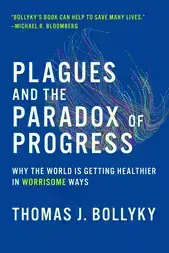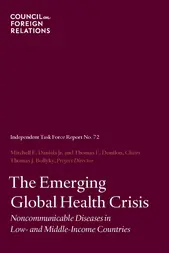A New Agenda for Changing Global Health Needs
Project Expert

Bloomberg Chair in Global Health; Senior Fellow for International Economics, Law, and Development; and Director of the Global Health Program
About the Project
Global health is in transition. As the COVID-19 pandemic has demonstrated, the emerging infections that have long occupied international health initiatives remain important, but, in many other ways, health threats are changing. The burden of traditional killers of children and adolescents—endemic infectious diseases such as malaria and measles—are declining in most countries and in every region of the world. That is good news, but this epidemiological transition is not yielding the demographic and economic benefits that accompanied that transition in wealthier countries. Cancers, heart disease, and noncommunicable diseases are increasing in prevalence faster, arising in younger and poorer populations, and having worse outcomes than seen in wealthy nations. Changes in global trade, urbanization, and the still nascent regulatory and health-care systems in emerging economies have also put a new set of health challenges—from food insecurity, antibiotic resistance, and environmental pollution to road safety, tobacco use, and substandard medicines—on the agenda for policymakers, businesses, and local communities. My research examines the strategic, economic, and humanitarian objectives that underlie U.S. and international priorities and investments in global health and how to ensure their continued effectiveness in the face of the world's changing health needs. As part of this work, I directed CFR's Independent Taskforce on Noncommunicable Diseases and host the Global Health, Economics, and Development Roundtable Series.
This project is made possible through the support of Bloomberg Philanthropies.
-
This interactive examines how nationwide bans on menthol cigarettes and flavored cigars, as proposed by the Biden administration on April 28, 2022, could help shrink the racial gap on U.S. lung cancer death rates.
-
-
Migration is seen as the product of desperate circumstances, but increasingly it is the byproduct of success—improved child survival followed by a booming young-adult population.
-
-
Why addressing chronic diseases is crucial for future pandemic preparedness
-
-
-
-
Refugee health needs in non-camp, urban settings have increasingly shifted to noncommunicable diseases. Providing preventive care and specialist treatment requires a massive influx of resources, but it is well worth the investment.
-
-
-
-
Health and infectious diseases have shaped the history of urbanization, but it is cities that will define the future of global health.
-
-
-
Public Health Threats and Pandemics
Global health expert Thomas J. Bollyky explores the paradox in our fight against infectious disease: the world is getting healthier in ways that should make us worry. -
-
Population growth and aging are fueling a spectacular rise in noncommunicable diseases, such as cancers and cardiovascular diseases, in poor countries that are ill-prepared to handle them.
-
-
-
 Online Store
Online Store

